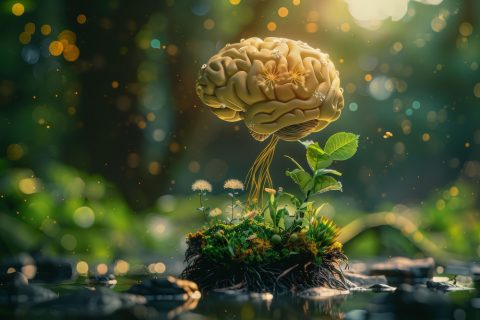Medically Reviewed by:
Khushal Girigosavi, a peer reviewer at the Cureus Journal with numerous research papers to his name, maintains high standards in medical research.
Have you ever found yourself forgetting where you placed your keys or struggling to recall someone’s name? As we age, it’s common to experience occasional lapses in memory. But what if these lapses become more frequent and start to interfere with your daily life? This is where understanding dementia becomes crucial.
Dementia is a generalised term that defines an impaired ability to think, remember or make decisions that interfere with everyday activities. It affects millions of ageing adults worldwide. While it can be a daunting topic to discuss, gaining knowledge about dementia is essential for both individuals experiencing cognitive changes and their loved ones.
In this blog post, we will explore ten essential facts about understanding dementia specifically tailored for ageing adults. We aim to increase dementia awareness and provide valuable information on ageing and cognitive health. By understanding the basics of this condition, we hope to empower you and your family with the tools needed to navigate the challenges associated with dementia.
So, let’s dive into the world of dementia and uncover the important facts that will help us better understand this complex condition. Together, we can shed light on the mysteries surrounding dementia and pave the way for a more informed and compassionate approach towards those living with it.
In the following paragraphs, we will discuss everything from early warning signs to available support networks. By the end of this blog post, you’ll have a solid foundation of knowledge regarding dementia and its impact on ageing adults.
Essential facts about dementia
As we age, it’s natural to have concerns about our cognitive health and the potential development of conditions like dementia. Dementia is a term that encompasses a range of symptoms associated with a decline in memory, thinking, and reasoning abilities. In this section, let’s explore 10 essential facts about dementia that are important for ageing adults to understand.
1. Dementia is not a normal part of ageing
While it’s true that some cognitive decline can occur as we get older, dementia is not a typical outcome of the ageing process. It is a distinct condition that affects the brain’s ability to function properly.
2. Alzheimer’s disease is the most common form of dementia
Alzheimer’s disease accounts for approximately 60-70% of all dementia cases. It is characterized by the accumulation of abnormal protein deposits in the brain, leading to the destruction of brain cells and cognitive decline.
3. Symptoms can vary from person to person:
Dementia can manifest differently in different individuals. While memory loss is a common symptom, other signs may include difficulty with language, impaired judgement, changes in mood or behaviour, and confusion.
| Fact box: Common symptoms of dementiaWhile the symptoms of dementia can vary from person to person, there are some common signs to look out for. These include:Memory lossDifficulty with communicationConfusionChanges in mood or behaviourTrouble with familiar tasks like finding one’s way around familiar placesStruggle with decision-making. |
4. Early diagnosis is crucial
Detecting dementia early allows for better management of symptoms and access to appropriate support services. Early detection can help because:
- It allows for better management of symptoms and provides opportunities to slow down the progression of the disease.
- It enables individuals and their families to make informed decisions about care options and plans for the future.
- Early detection allows access to support services and resources that can improve the quality of life for both the person with dementia and their caregivers. If you or your loved one are experiencing cognitive difficulties, it’s important to seek medical advice promptly.
5. Lifestyle factors play a role in dementia risk
Certain lifestyle choices can influence the risk of developing dementia. Some of these include obesity, heavy alcohol consumption, chronic smoking, and emotional issues like stress and anxiety.
Engaging in regular physical exercise, maintaining social connections, following a healthy diet (such as the Mediterranean diet), managing chronic conditions like diabetes and hypertension, and challenging your brain with mentally stimulating activities can help reduce the risk.
Hearing loss could signal a higher risk of dementia, according to Dr. Santosh Bangar. Take action if you’re struggling to hear. Untreated hearing loss can also make you less socially active, increasing your dementia risk.
6. There is no cure for dementia
Currently, there is no known cure for dementia. However, there are treatments available that can help manage symptoms and improve quality of life. Supportive therapies, such as cognitive rehabilitation and occupational therapy, can also be beneficial.
7. Care and support are essential for individuals with dementia
A person with dementia may require assistance with daily activities as their condition progresses. Creating a safe and supportive environment, ensuring proper nutrition, engaging in meaningful activities, and providing emotional support are crucial aspects of care.
| Did you know? Studies suggest that several non-pharmacological therapies, such as cognitive stimulation therapy, reality orientation, music therapy, art therapy, and reminiscence therapy have shown positive effects in supporting individuals with dementia. |
8. Dementia affects not only the individual but also their family and caregivers
Caring for someone with dementia can be challenging both physically and emotionally. Dementia not only affects the person diagnosed but also has a profound impact on their caregivers.Seeking support from support groups, respite care services, and professional caregivers can help alleviate some of these burdens.
9. Research on dementia is ongoing
Scientists continue to explore the underlying causes of dementia and search for potential treatments. Participating in clinical trials can contribute to advancements in understanding and managing this complex condition.
10. Education and awareness are key
By increasing awareness in society, we can reduce stigma the stigma around dementia, promote early detection, and improve overall care for individuals living with dementia. Ageing adults and their families need to stay informed about the latest developments in dementia research and resources available in their communities.
While living with dementia can be challenging, it’s important to maintain a positive outlook and focus on what is still possible. Engaging in activities that bring joy, staying connected with loved ones, participating in hobbies or interests, and seeking support when needed are all ways to maintain a fulfilling life despite the challenges. Remember that your condition does not define you, and you have the strength to overcome obstacles and find joy each day.
Conclusion
Understanding dementia is essential in maintaining our cognitive age. By familiarising ourselves with the key facts surrounding this condition, we can better navigate any challenges that may arise.
It’s crucial to remember that dementia is not a normal part of ageing but rather a neurological disorder that affects memory, thinking, and behaviour. By recognizing the early signs and symptoms, we can seek help and support sooner, potentially slowing down the progression of the disease.
If you or a loved one are concerned about dementia, there are several tests available that can provide insights into cognitive decline. Consulting with a healthcare professional and undergoing these assessments can help determine the best course of action and support for managing the condition.
Additionally, it’s important to create an environment that promotes brain health. Engaging in regular physical exercise, maintaining a balanced diet, staying mentally active by pursuing hobbies or learning new skills, and nurturing social connections are all beneficial for our cognitive well-being.
Remember, knowledge is power. By understanding dementia and its impact on our lives, we can take proactive steps towards maintaining our cognitive health and living fulfilling lives. If you’d like to learn more about dementia awareness or explore additional resources on this topic, we encourage you to visit our website at liveivory.com.
Together, let’s continue to educate ourselves and support one another in navigating the complexities of ageing and cognitive health.




